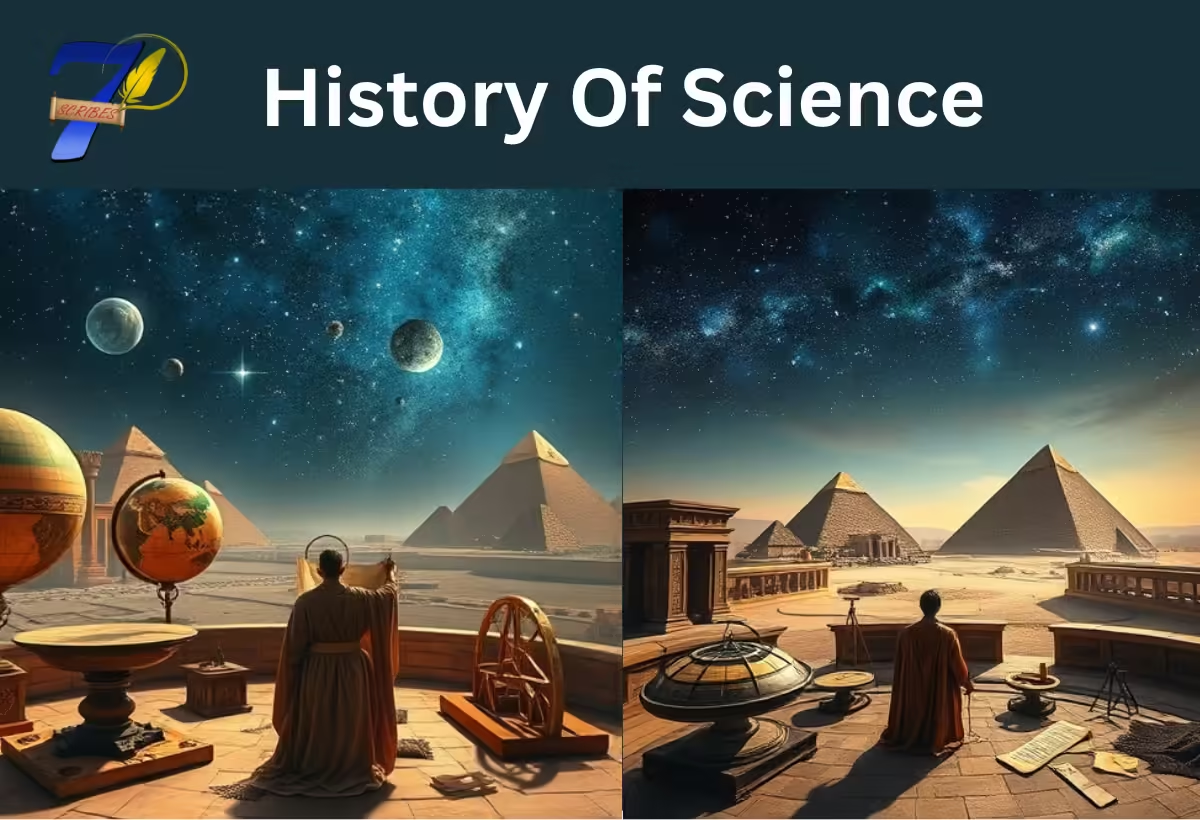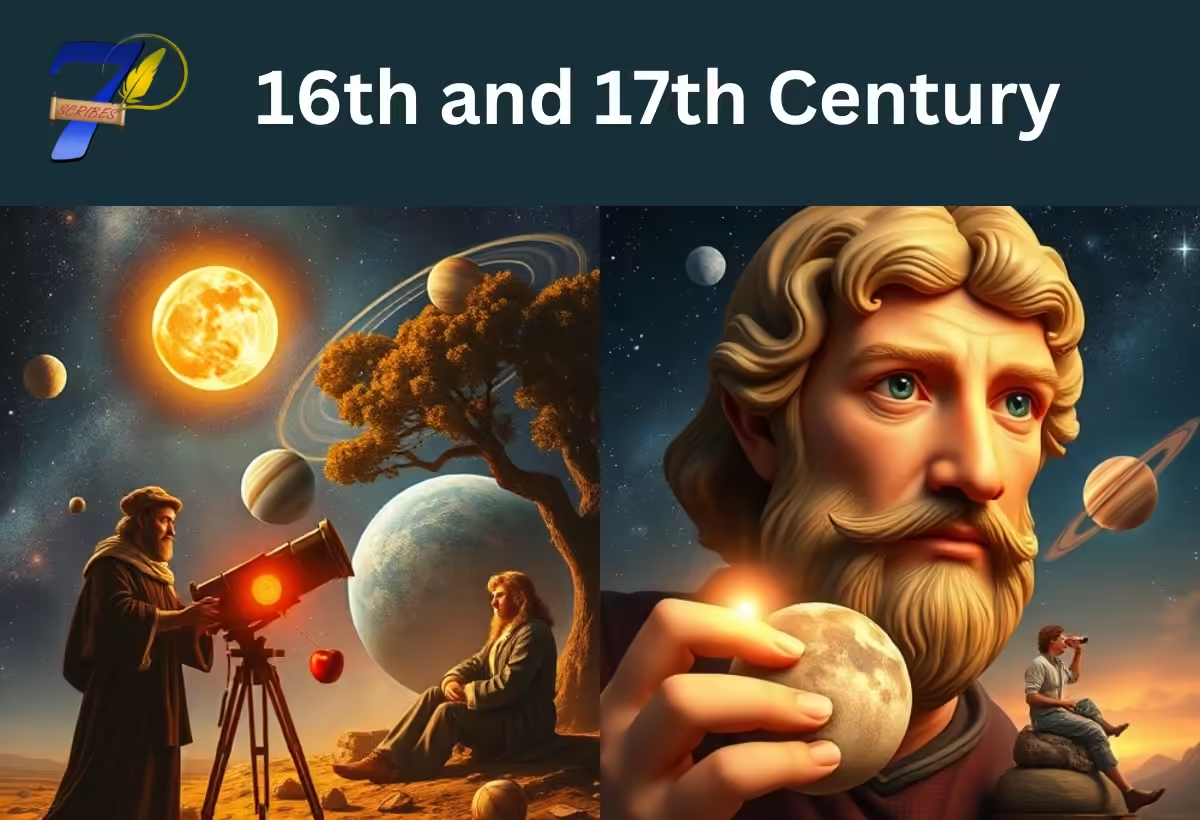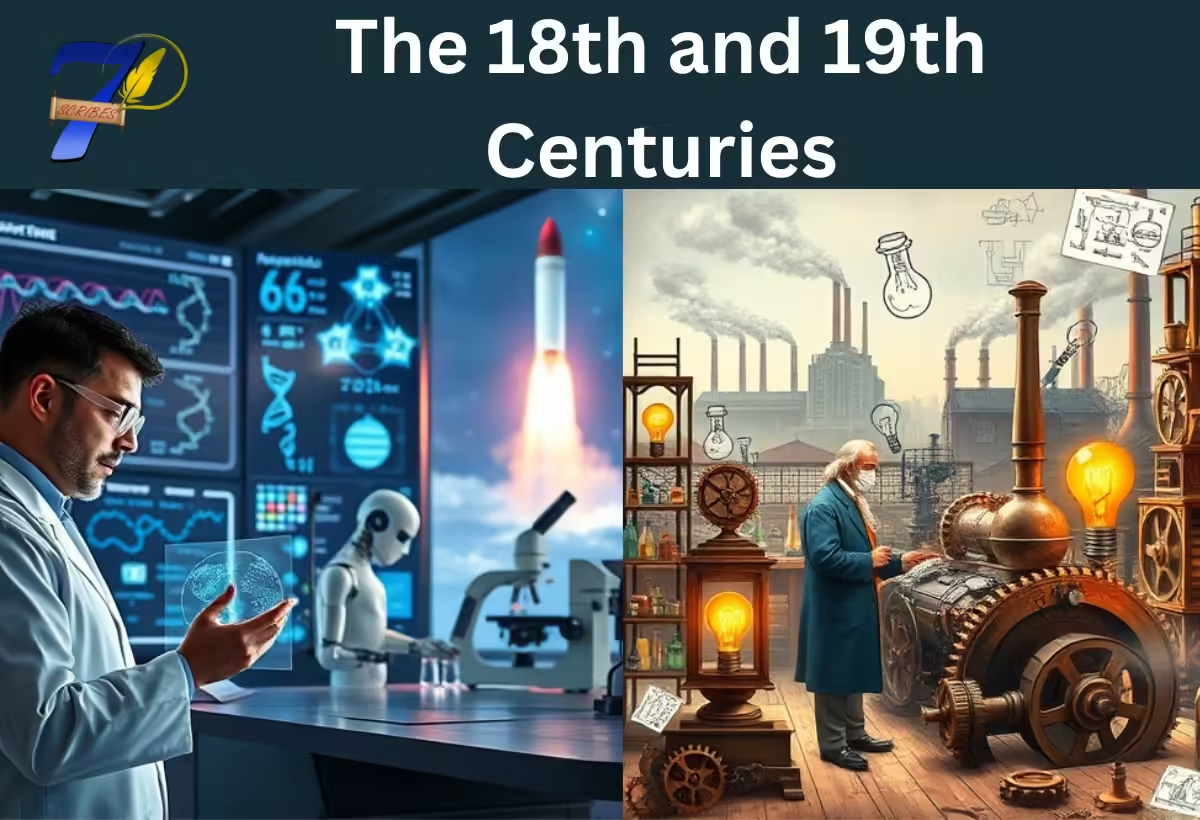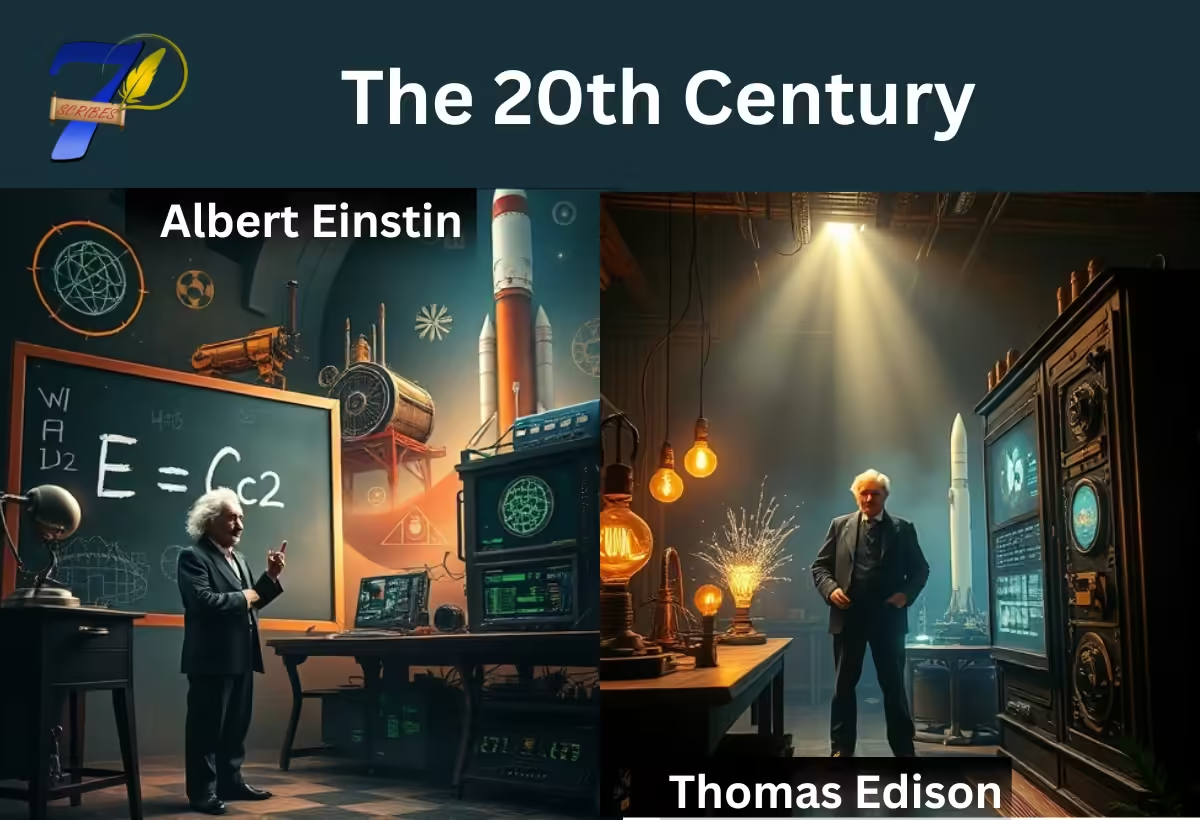Lets took a deep dive in history of modern science through this article. Science is a product of observations and experiments. The developments of science means the change in humans need and experiences. The history of science found in the ancient civilizations Mesopotamians and Egyptians. They start to think about the observations and behavior of the universe. The birth of modern science starts from 16th and 17th century. Well known scientist like Galileo etc. Who laid the foundation of modern science. In 18th century the science rapidly evolve and invent computer. The rapid increase in development in science occur during 19th century when the branch of science and distinguished. Now, in 21th century it is the peak of science and there is much more to invent and resolves the mysterious of universe.
History of Science:

The History of science has emerged from the day when humans start to think about different creations of the universe. The first evidence of science is ancient civilization Mesopotamia and Egyptians about 4000BC.Around 4000 BCE, the Mesopotamians developed one of the first known writing systems, cuneiform, which they used to document astronomical observations and mathematical computations. The Egyptians, around 3000 BCE, built monumental structures such as the pyramids, applying geometry and engineering principles.. They believed that earth exists in the center of the universe. And other Creations revolve around it. Later on, they discovered new ways of counting by using different tools and tricks like use of pebbles to count things. They work in the region of astronomy, mathematics as mentioned before ,and medicine. The ancient scientist like Aristotle and Archimedes laid the foundational basis of science. The laws and principals helps to much to developed science to this stage.
Birth and History of Modern Science:
-
16th and 17th Century:

The sixteen and seventeen century is considered as the beginning of modern sciences. The works of some several groundbreaking scientist led the foundation of modern scientists. like Nicolaus Copernicus (1473–1543), Galileo Galilei (1564–1642), and Isaac Newton (1643–1727).Modern science emerged in the 16th and 17th century. This was the era where science is really developed. The scientists at this age laid the basis of modern science. Some of them are Isaac Newton ,Galileo ,Thomas Edison, Charles Babbage(father of computer) and Einstein etc. and other are the founding member of modern science. The principal of Newton helps humans and scientists to understand the behavior of things in the universe.
- Nicolaus Copernicus (1473–1543): He Proposed the heliocentric model of the solar system.
- Galileo Galilei (1564–1642): Through telescopic observations, Galileo confirmed the heliocentric theory and discovered moons orbiting Jupiter, providing evidence that not everything revolved around Earth.
- Isaac Newton (1643–1727): Formulated the laws of motion and universal gravitation, which became the cornerstone of classical physics. (Newton Laws)
-
The 18th and 19th Centuries: Rapid Growth and the Industrial
The 18th century saw a consolidation of scientific ideas and the rise of new fields. The Enlightenment, with its emphasis on reason and individual inquiry, encouraged advancements in all areas of knowledge, including chemistry, biology, and physics. Scientists like Antoine Lavoisier (1743–1794), often called the “father of modern chemistry,” helped to establish the concept of chemical reactions and the law of conservation of mass.

The 19th century was a period of remarkable technological and scientific advances. Key developments include:
- The industrial revolution, which transformed societies and economies, fueled by innovations like the steam engine (James Watt, 1776).
- The theory of evolution by Charles Darwin (1809–1882), which changed the way humanity understood biology and the origin of species.
- The invention of the telephone by Alexander Graham Bell (1847–1922) and the electric light bulb by Thomas Edison (1847–1931), both of which revolutionized communication and daily life.
The inventor of Bulb is Edison which completely changes the landscape of science.
Computers help people to calculate the complex calculations in microseconds. Einstein theory of relativity also has a significance in modern science. The big revolution in science occurs in science in the 19th century where the flood of inventions emerged. Inventions of smart phones, apple computer that help scientists to examine the universe. Now, we live in the age of science where new innovations emerge day by day. Artificial Intelligence, nanotechnology ,biotechnology are the rising fields of science.
But there is much more invention in the near future with the help of quantum and nanotechnology .
-
The 20th Century: Revolution Revolution in Thought and Technology
The rise of science begins in 20th century. When several scientists works came to results such as:

- Albert Einstein (1879–1955): He was a key figure of the 20th century, his theories: 1) special relativity (1905), 2) general relativity (1915), 3) Mass and Energy Relationship E = mc², leading to the development of nuclear energy and atomic science.
- Thomas Edison (1847–1931) was an American inventor and entrepreneur known for his groundbreaking work in the development of electric power and technology. He is best known for inventing the practical incandescent light bulb and for developing the phonograph
- Charles Babbage: (Father of Computer) The invention of the computer by Charles Babbage in the early 19th century, and the later contributions of Alan Turing and others, laid the foundation for the digital age. By the mid-20th century, computers became powerful enough to perform complex calculations, advancing scientific research across fields.
-
The 21st Century: The Age of Innovation
From the birth to 21th century sciences continuously evolve and rise non stop. Today, in 21th century is the era of the Artificial intelligence, biotechnology, nanotechnology, and quantum computing are transforming the ways we work, live, and understand the universe. For example:
- CRISPR gene editing allows for precision in altering DNA, opening new frontiers in medicine and agriculture.
- Quantum computing promises to revolutionize computational capabilities, allowing for the solving of previously intractable problems in chemistry, physics, and cryptography.
- The space race, led by entities like NASA and private companies such as SpaceX, is also expanding our exploration of the universe, with missions to Mars and beyond.
Conclusion: Science and Human Curiosity
In summary, the history of science is a tale of human curiosity, creativity, and persistence. It is the product of our desire to understand the world around us and harness that understanding for practical purposes. From the early observations of the Babylonians and Egyptians to the technological wonders of the 21st century, science has continually evolved in response to our changing needs and experiences. With fields like quantum physics and artificial intelligence on the horizon, the future of science promises even greater discoveries, unraveling more of the mysteries of the universe. Science is not just a set of facts; it’s a process — a way of thinking and learning that is always open to challenge, change, and innovation. The journey of scientific discovery continues, and there is undoubtedly much more to learn, invent, and explore in the years to come.
Read More: